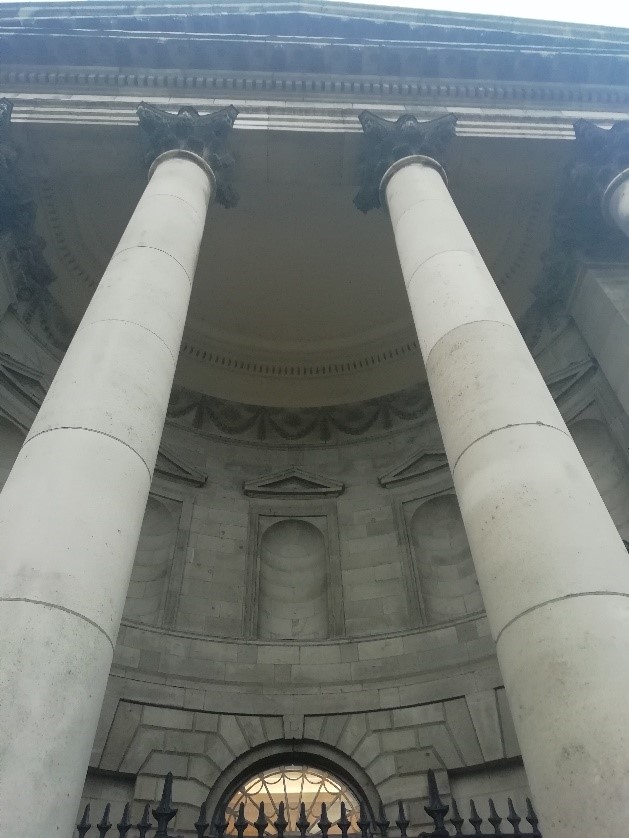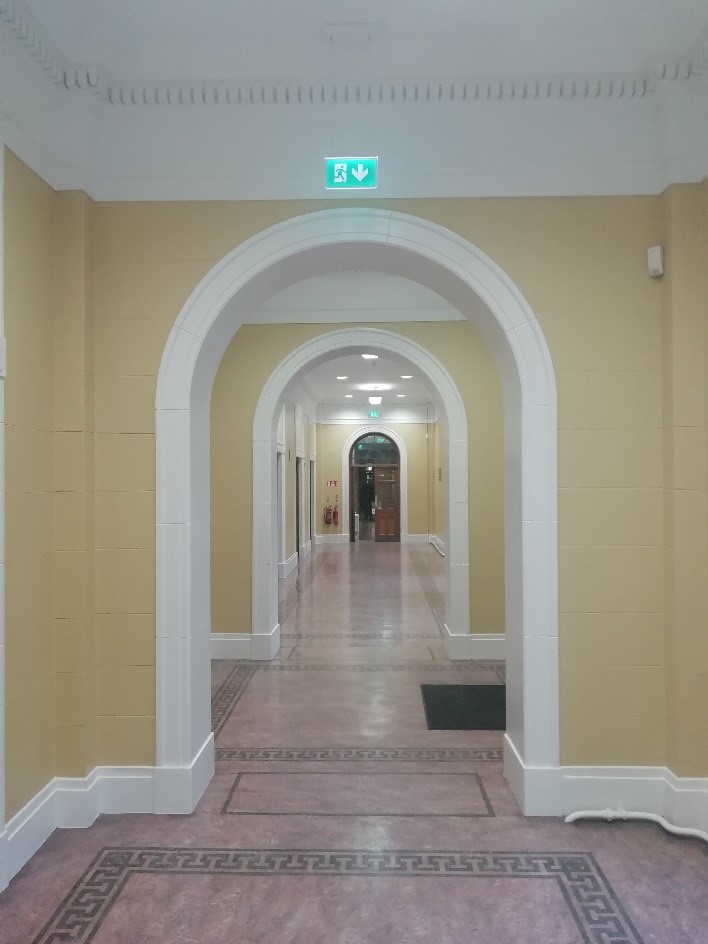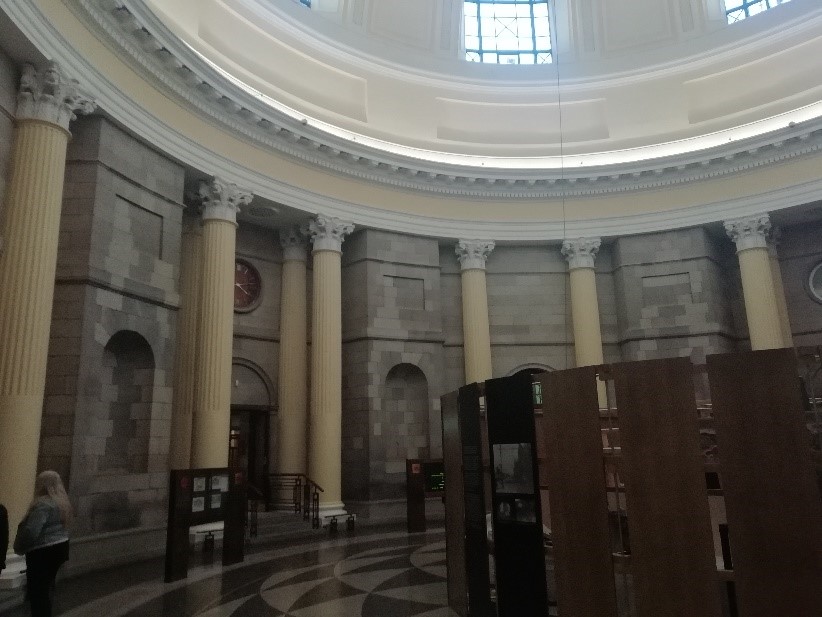- Nature and Wellbeing - 31/10/2020
- A Scientist Goes to Court - 29/01/2019
A very interesting case has been underway in the high court the past week. Last Thursday and Friday, the Friends of the Irish Environment (FIE), a conglomerate which represents Irish environmental NGOs, have been laying out their case that the Irish State’s actions on climate change are inadequate. They argue that that the government’s approval of the National Mitigation Plan in 2017 was in violation of Ireland’s Climate Action and Low Carbon Development Act, the Constitution, and human rights obligations. Basically, climate change is a thing, and Ireland hasn’t acted adequately to decarbonise the economy, putting the lives of its citizens at risk. Today the state was responding, so I went along to hear how they were going to defend their record.

Now, I’ve never been to a court case before. My education on courtroom proceedings consists of sitting through episodes of The Good Wife my mother watched, so I was expecting a lot of ‘Objection Your Honour!’ and grand sweeping statements to the jury. The Four Courts lived up to that illustrious expectation. Barristers in billowing black cloaks swishing self-importantly down hushed hallways, quiet alcoves of whispering solicitors and a confused, bedraggled ecologist who’d just cycled in the rain and so his coat, shoes and trouser legs were all mud splattered. Represent! But the actual court case was being heard in Courtroom 29. In fact, the name ‘Courtroom 29’ about sums it up. A small room, an elevated dais where the judge sat, the two legal teams in front and the media and public to the side. All in all, there were probably 50 people in attendance.
All 50 of which were trying to stay alert and attentive, or at least look alert and attentive, as the state’s attorney droned on about the various commitments that various state bodies had made to tackle climate change. ‘Teagasc are doing X, the health service Y, blah di blah di blah’. I took a seat and quickly tuned out for the 20 minutes it took the state’s barrister to itemise all the commitments and aspirations the Irish public sector has made, by which time I was starting to regret ever coming. But then the barrister changed tack. She proposed that the case being made would be in breach of the separation of powers. A ripple of excitement around the room, lots of frowning and scribbling on notepads. Basically, if the FIE were to win and the National Mitigation Plan was found to be inadequate and in need of beefing up, the courts, an undemocratically elected body, would be telling the legislature and executive to make a law. Courts don’t make laws, the elected government does. This tactic is interesting for two reasons. It means that the State is building its case based on technicalities rather than attacking the evidence directly. The Irish State accepts that climate change is a real and existential threat (hurrah!), but is going to try to wriggle out of the responsibility based on the technicalities of the law (woo, I mean boo!).

The State doubled down on this tactic when the second barrister for the state got up and called into question whether the applicant, the FIE, had any legal standing as it’s a registered company, further called into question whether there is such a thing as a right to the environment (there is, it’s just unwritten and so contentious), and then said that FIE were attacking a straw man in going after the National Mitigation Plan.
Most of this went over my head, as I’m sure reading it now does to you, but there was a lot of frowning and scribbling going on at each development so I pretended I knew what I was doing, frowned, scratched my chin and wrote ‘I’m not sure what’s going on but its exciting’ in my notes. And it really was exciting. There was a quiet, sophisticated drama unfolding. A very slow game of chess, laying out the ground work to set up a point, defending it using the constitution and precedent, and then skewering the opponent’s arguments. It’s really very entertaining.
At the same time, it also seemed very subjective, it did seem like a game. So much is about the charisma of the barrister and what bits of evidence the judge finds compelling. Which is why hiring expensive lawyers wins a case. Whether the point in question is morally right or just isn’t the main currency, it’s just about scoring points based on the rules (I knew this already, but it is still uncomfortable to see). From a very naïve outsider, it seems like a sophisticated logic machine, some AI of the future, should be fed both arguments and allowed to reach a conclusion. At least that get rids of the charisma of the barrister and biases of the judge. Maybe this is fanciful, but the AI need only be better at making decisions than the judge, which isn’t an impossible task. And we can examine the code and data fed to the AI for biases and attempt to correct for them, whereas we can’t do that for a judge.
It also gets you thinking about legal systems in general. We have a constitution, basically principles we’ve agreed upon, and lots of case law interpreting those principles. Whereas, the Netherlands, where a similar case actually won last year, is a system based on civil law, with literally books and books of what you can and can’t do. (Have a look at this map of all the different systems of law out there!). There’s Wikipedia rabbit hole waiting to happen.

What I’ve learned:
- You can just wander into a court room, who knew??
- Everyone should go and see a court in action.
- Law is really a game, a very subjective game. Hence, money can win a case – how unjust is that?
- The science of climate change is undisputed by the Irish state (hurrah!).
- The Irish State is trying to wriggle out of more action using technicalities to get the application thrown out (boo!).
- Courtrooms have a very sophisticated, quiet drama to them that I love! It’s live chess with infinite types of pieces.
- The legal system needs to go digital, there’s no way they need that amount of paper!
- The only woman barrister I saw was in Courtroom 29, defending the state against climate change.
Best line of the day – The State’s barrister commenting on the case: “The whole tone of the application is very pessimistic, unsurprising given their NGO status…”. Wow, getting the digs in.
______________
About the Author
Website | Cian WhitePlant Animal InteractionsUrban Ecology
Twitter | @Cian_De_Faoiche

